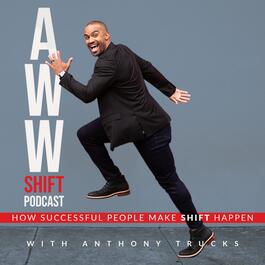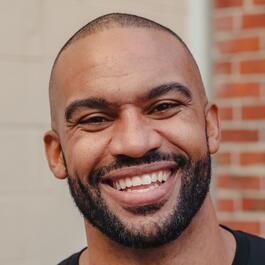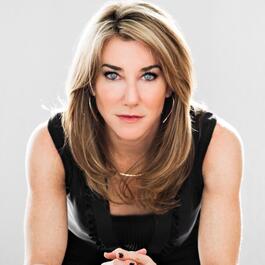
How to Make Success Feel Like You've Succeeded with Laura Gassner Otting
In today’s episode, our guest is Laura Gassner Otting. She is an author, catalyst, and Executive Coach. She inspires people to push past the doubt and indecision that keep great ideas in limbo by helping her audience think bigger and accept greater challenges that reach beyond their current, limited scope of belief. [2:48] Why should I listen to you? As an introverted person, I rarely initiate conversations with others. On a plane, for example, I would put my earphones in even if they're not turned on. It's ironic because I'm a professional speaker, and I'm comfortable speaking in front of large crowds. However, if I did feel compelled to talk to you, it would likely be because I care deeply like a Jewish mother. Perhaps you're having coffee with someone who is giving you terrible advice, and they've stepped away for a moment. I would turn to you and urge you to listen and avoid making a mistake. I would speak with such conviction and passion that you would either agree with me or think that I'm unhinged. In any case, you would feel hesitant to ignore my advice because you might upset me. I know this may sound crazy, but that's just how I am. [10:20] Can you unpack more about your journey? Yes, the journey from being a reluctant speaker to becoming a successful one was definitely not an easy one. It required a lot of hard work, persistence, and courage to overcome the fear of public speaking and the uncertainty of pursuing a new career path. After my TEDx talk, I started getting invitations to speak at other events and conferences, and I realized that there was a demand for my message and my style of speaking. But I also realized that I had a lot to learn about the craft of speaking, such as how to structure a talk, how to engage the audience, how to use humor and storytelling effectively, and how to handle unexpected situations. So I invested a lot of time and effort into learning from other speakers, attending workshops and conferences, and practicing my talks. I also hired a speaking coach who helped me refine my message, my delivery, and my stage presence. But even with all the preparation, there were still moments of doubt and fear. There were times when I questioned whether I was good enough or whether I had anything new or valuable to say. There were times when I faced difficult audiences or technical glitches or travel delays that tested my patience and resilience. However, I also had moments of joy and fulfillment when I saw how my talks were inspiring and empowering people to make positive changes in their lives and their communities. I received feedback from people who told me that my talks had helped them overcome their own fears, discover their own purpose, and take action toward their own goals. And that's what kept me going, even when the road was bumpy and uncertain. I realized that speaking was not just a job, but a calling, a way for me to share my passion and my vision with the world, and to connect with others who shared that same vision. [25:50] How does someone get to that point where they can turn off the monitor that says they need to be accepted by everybody? Upon the release of my most recent TEDx talk on the concept of wonder, it garnered nearly a million views with approximately 20,000 likes and 700 comments. While it is safe to say that it has been well-received, there have been criticisms, such as a comment from one individual who questioned why I speak in a certain manner. I responded to this criticism by sharing a screenshot of it on my Instagram account and stating that this is simply how I speak. However, even with this response, the negative comments still affect me deeply. Amy Cuddy, who was also a victim of online bullying due to her power posing, advised me to stop reading the comments altogether, recognizing that it is a cesspool of negativity. Nonetheless, I find it difficult to silence the voices of those who criticize me, and I often find myself reading the negative comments and doubting myself. I even remember the one-star reviews of my books verbatim, even though there are countless five-star reviews. To cope with this, I attempt to amplify the voices of those whose opinions I respect, even if they do not explicitly praise me. I recognize that these individuals show up for me, cheer me on, and discuss me with their friends, yet they are not always vocal about their support. Therefore, I seek out their honest feedback and sit down with them to ask if the criticisms hold any validity, hoping to gain some clarity amidst the noise. [31:25] Can you unpack the cool concept about Wonder Hell? When "Limitless" was released and became a best-seller, I expected only a few people, like my mother, father, and sister, to purchase the book. I mainly wrote it to overcome feelings of fraudulence when speaking on stage and to have a tangible accomplishment. However, it was a huge success, and Amy Cuddy even provided a blurb for the book. We sent out press releases in January, and the day after, the Today Show contacted us, having been drawn by Amy's name on the book cover. The book came out in April, and I made appearances on the Today Show, Good Morning America, and other shows. During a red-eye flight home from speaking at an event where I shared the stage with Malala, I realized that the work I had done had opened doors I never thought possible. The potential I saw was both exciting and daunting, and I struggled with anxiety, imposter syndrome, and doubt. We all experience this burden of potential, where we realize the possibilities for our lives and wonder if we will live up to them. While it may not be easy or smooth sailing, these moments are invitations rather than limitations. When I found myself feeling overwhelmed and stuck at home, I had the opportunity to talk to a variety of people, from Olympic medalists and startup unicorns to everyday people like myself, about how they overcame difficult moments. I was curious to know how they managed to get through these challenging times. What I discovered was that there is always another difficult moment waiting for us, even after we conquer one. Instead of just surviving these moments, we should learn to embrace them and thrive in them. This is what I talk about in my book, "Wonder Hell," which is divided into three sections: Imposter City, Downsville, and Burnout City. Each section has its own set of challenges, like rides in an amusement park. We often think that achieving success will make everything easier, but in reality, it only gets harder. Therefore, it's important to appreciate the challenges along the way and ask ourselves if this is what we truly want to be doing. My book is shaped around lessons learned from the people I talked to about how they got through tough times. [39:18] How does someone approach imposter syndrome to achieve success? There are many different ways to approach achieving success. One piece of advice I often give is that the things that got you to where you are now may not be the same things you need to reach your next goal. However, these past accomplishments are what has given you the confidence to stand where you are today. For example, there is a woman I mention in my book named Dorie Clark, who has had success as an author, speaker, and business school professor. A few years ago, she decided to pursue a completely different career in scoring Broadway musicals. On the first day of her program, when everyone was introducing themselves, she was intimidated by the others' accomplishments. But instead of feeling unqualified, she recognized that she had been successful in other areas of her life and that with hard work and practice, she could become successful in this new field as well. Confidence is not something you are born with; it comes from competence. Competence is developed by consistently taking action, learning from failures, and getting back up again. You don't become a marathon runner overnight; you start with running a mile, then a 5K, and then a 10K. Similarly, the skills and experiences that have led to your past success can be translated or adapted to help you achieve your next goal. It's important to reflect on how you got to where you are now and identify the strategies and skills that you can use to continue growing and developing. By doing this, you can approach your next challenge with the knowledge that you may not be good at it yet, but with effort and practice, you can become good at it. [48:35] What promise did God make to the world when he created you? I believe it's challenging to answer that question without sounding arrogant because I believe that the Creator intended for all of us to have a purpose and make a positive impact on others' lives. However, I also believe that humility is essential, and it's something that we learn from our elders. Ideally, I hope that the reason why the Creator put me on this earth is to make a difference in people's lives and contribute to their well-being, even if it's just a small part. For instance, I aspire to positively influence my children's lives and provide guidance to them whenever necessary. Key Quotes [22:50-22:54] What is holding us back is not the fear of being loved by people, it is the assumption that people’s opinion matters [23:05-23:10] I am not who I think I am, I am not who you think I am, I am who I think you think I am How to connect with Laura Gassner Otting Instagram: https://www.instagram.com/heylgo/?hl=en Facebook: https://www.facebook.com/heylgo/ LinkedIn: https://na.linkedin.com/wonderhell
From "Aww Shift"




Comments
Add comment Feedback